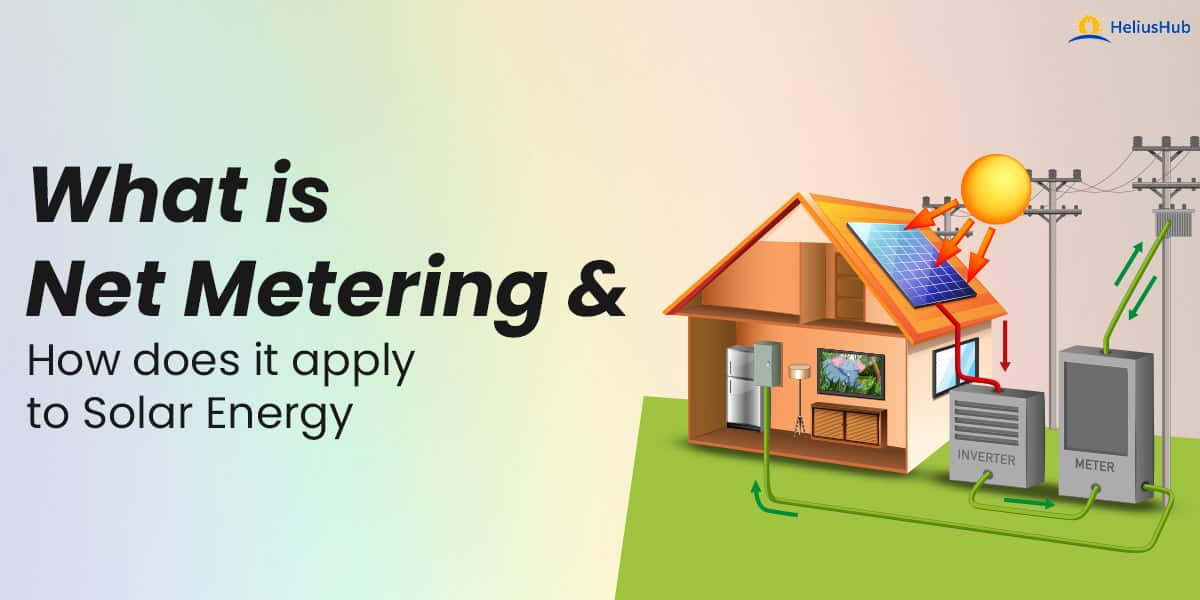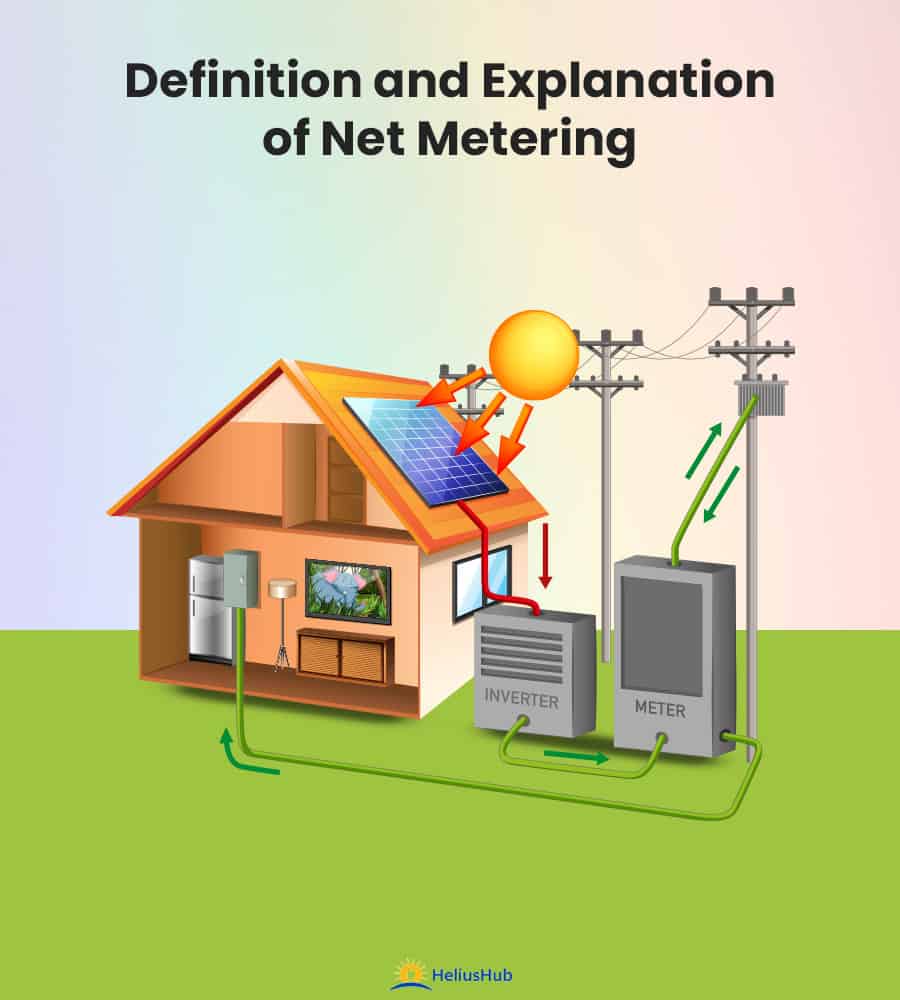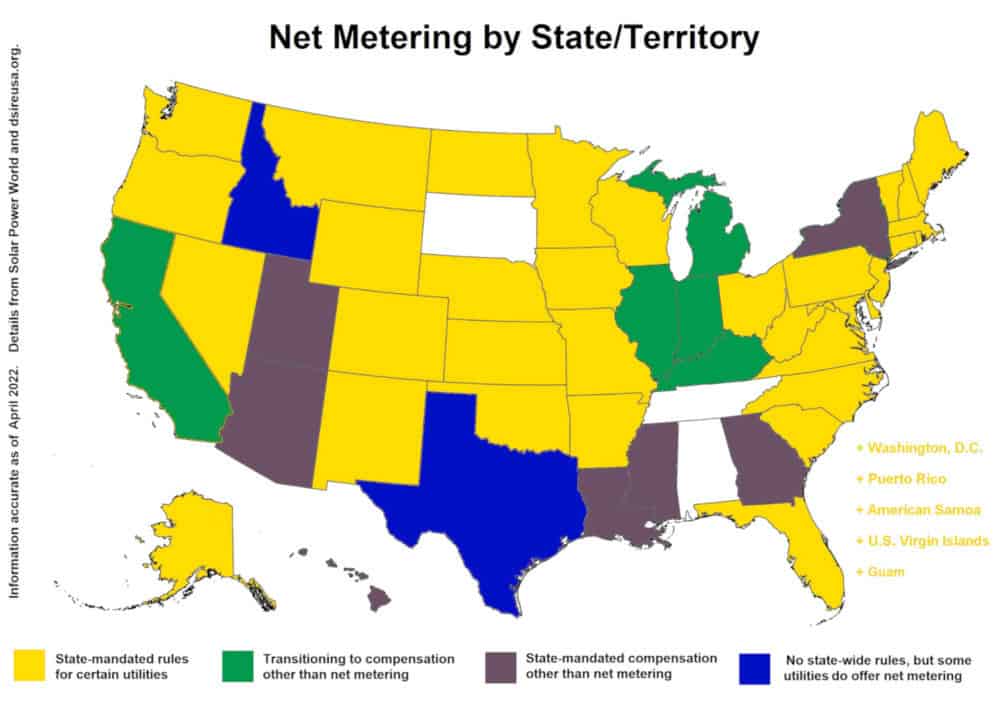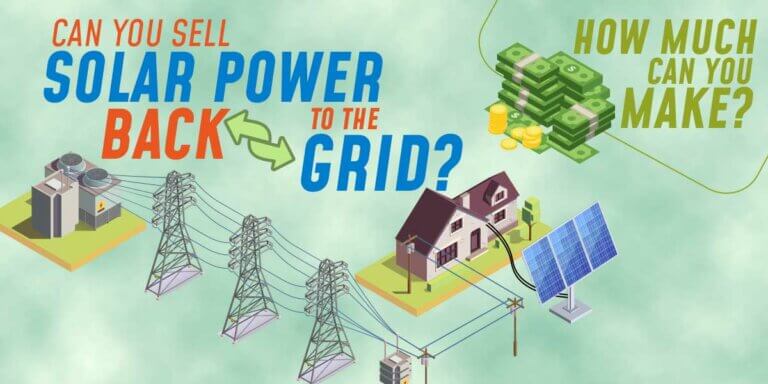What Is Net Metering and How Does it Apply to Solar Energy?

Net metering is a billing system that allows individuals with solar energy systems to be credited for the electricity they produce.
It is an arrangement between a utility company and its customer, where the customer’s solar energy system is connected to the utility company’s grid. The solar energy system generates electricity and feeds it back into the grid, which is then used by other customers.
The utility company credits the customer for the excess electricity they produce, which is then subtracted from the customer’s electricity bill. This means that customers can generate their own electricity and use it as an alternative to standard power sources, reducing their electricity bill in the process.
Net metering is especially beneficial to those who have installed solar energy systems, as it provides an incentive for customers to use solar energy, and it helps reduce the strain on the grid by allowing the customer to produce their own electricity.
It also helps to reduce the costs of electricity, as customers can generate their own power and are not required to pay their utility company for the electricity they produce.
Net metering is a great way to encourage customers to use solar energy and help reduce the costs of electricity in the process. It also helps to reduce the strain on the grid, by allowing customers to produce their own electricity and encourages customers to use alternative sources of power, such as solar energy.
- 1. Definition And Explanation Of Net Metering
- 2. Benefits of Net Metering Net
- 3. How Net Metering Applies To Solar Energy?
- 4. Pros And Cons Of Net Metering
- 5. Conclusion
-
6.
FAQs-
- 6.1. 1. Is there a cost to participate in net metering?
- 6.2. 2. How long does it take to get net metering installed?
- 6.3. 3. Can I still use net metering if I don’t have solar panels?
- 6.4. 4. Do I need a special meter for net metering?
- 6.5. 5. Can I receive cash payments for excess energy I generate?
- 6.6. 6. Can I use net metering to offset my entire electricity bill?
- 6.7. 7. Is there a limit to how much energy I can sell back to the grid?
Definition And Explanation Of Net Metering

What is Net Metering?
Net metering is an energy policy that allows homeowners or businesses that generate their own electricity from renewable sources such as solar, wind, or hydropower to send the excess energy they produce back to the electricity grid. It is a system that enables homeowners to reduce their overall energy costs by taking advantage of their renewable energy production.
How Does Net Metering Work?
When a homeowner installs a renewable energy system, such as a solar panel, wind turbine, or another type of renewable energy system, they can generate their own electricity. This electricity is sent to the electricity grid, and in return, the homeowner is credited for the excess energy they produce.
The excess energy is sent back to the grid, and then the homeowner’s utility company credits them with a dollar amount for the energy they generated. This dollar amount is then taken off of their total utility bill.
The homeowner is then only responsible for paying for the amount of electricity they used over and above what they produced.
Example of Net Metering
For example, if a homeowner has a solar panel system that produces 1,000 kWh of electricity per month, and they use 1,200 kWh of electricity, they will only be responsible for paying for the 200 KWh they used over and above the 1,000 KWh they produced. The utility company will then credit the homeowner for the 1,000 KWh they produced, essentially giving them a discount on their total utility bill.
Benefits of Net Metering Net
Net metering offers several benefits for both homeowners and utilities. Homeowners are able to reduce their monthly energy costs, as well as their overall reliance on the grid. Utilities are able to reduce the amount of energy they need to produce, thus reducing their overall costs and helping to reduce pollution.
Additionally, net metering helps to promote the development of renewable energy sources, which helps to reduce our reliance on fossil fuels and contributes to the fight against climate change.
How Net Metering Applies To Solar Energy?

Net metering is a billing mechanism that allows solar energy customers to earn credits for the excess electricity they generate and send back to the grid. With net metering, customers are credited for each kilowatt-hour (kWh) of electricity they generate, reducing the amount of electricity they purchase from their utility.
The benefits of net metering for solar energy customers are numerous. These include reducing or eliminating electricity bills, helping to offset the cost of installing solar energy systems, and providing a reliable source of clean energy. Net metering also helps to support the growth of renewable energy sources in general.
Net metering for solar energy is different from other forms of renewable energy in that it allows customers to generate and store electricity for later use, rather than simply sending excess electricity back to the grid. This is beneficial for solar energy customers, as it allows them to store surplus energy for periods when there is less sunlight available.
The regulations for net metering vary from state to state, and in some cases, from region to region. In some states, net metering is mandated, meaning the utility must offer the program. In other states, the utility can choose to offer net metering, or they may offer a different program.
For example, in California, net metering is mandatory, while in Texas, utilities are not required to offer net metering.
Overall, net metering is an important component of solar energy systems, as it allows customers to generate and store excess energy. It is also beneficial for the growth of renewable energy sources in general, as it makes solar energy more accessible and affordable.
Pros And Cons Of Net Metering
Pros of Net Metering
- Financial Savings: Net metering allows homeowners and businesses to receive a credit for excess energy production that is sold back to the electric utility. This reduces the amount of energy purchased from the utility and results in significant savings.
- Increased Adoption of Renewable Energy: Net metering makes renewable energy sources more attractive to consumers, as they can now generate their own power and receive payment for it. This encourages more people to switch to renewable energy sources such as solar, wind, and geothermal.
- Environmental Benefits: By reducing the demand for electricity from the grid, net metering reduces pollution and greenhouse gas emissions associated with electric power production.
Cons of Net Metering
- Cost-Shifting: Net metering shifts the cost of electric grid maintenance and upgrades from solar customers to non-solar customers, resulting in higher costs for those who do not have solar panels.
- Issues of Fairness: Net metering has been criticized for being unfair to non-solar customers who have to pay for the grid maintenance and upgrades that solar customers do not.
- Technical Challenges: Net metering requires a complex system of meters and software to ensure that all customers are being fairly compensated for the energy they produce and consume. This can be difficult and costly to implement for some utilities.
Conclusion
In conclusion, net metering is an important tool for solar energy customers looking to reduce their electricity bills and support the growth of renewable energy.
By allowing customers to sell excess electricity generated from their solar systems back to the grid, net metering allows them to benefit from lower costs and increased efficiency.
Understanding how net metering works is essential for solar energy customers, and it’s important to be aware of the different policies in different states. By taking the time to research net metering and its many benefits, solar energy customers can make smart decisions and reap the rewards of clean, renewable energy.






